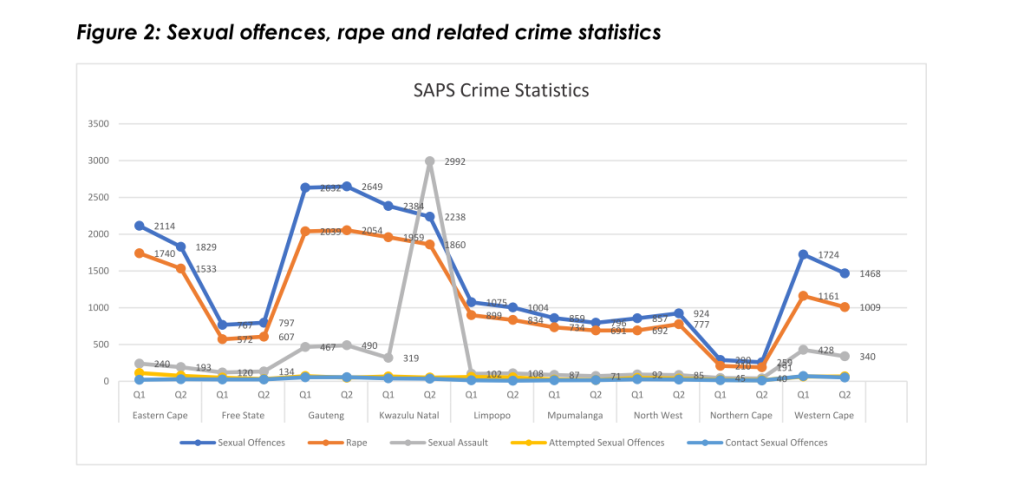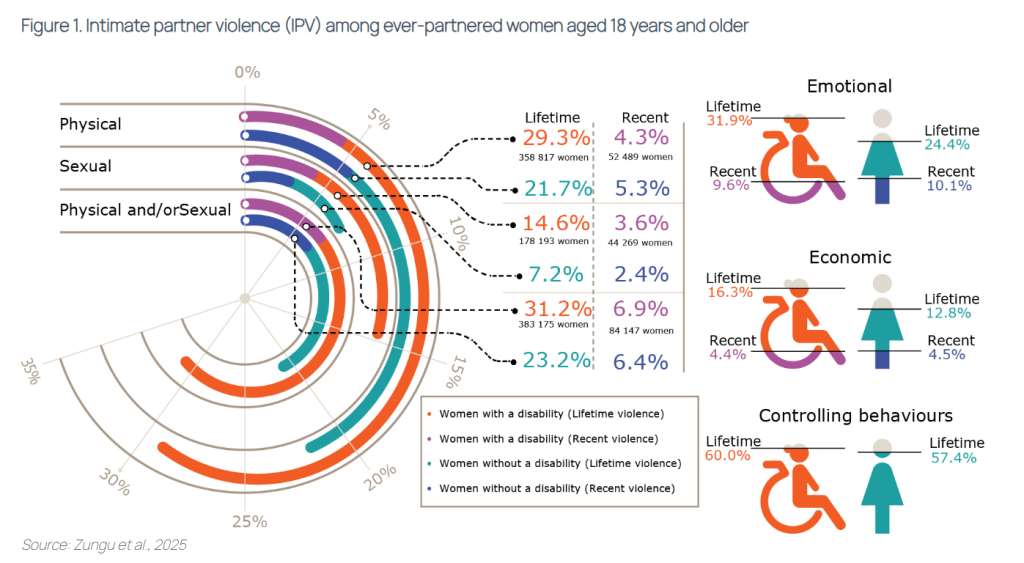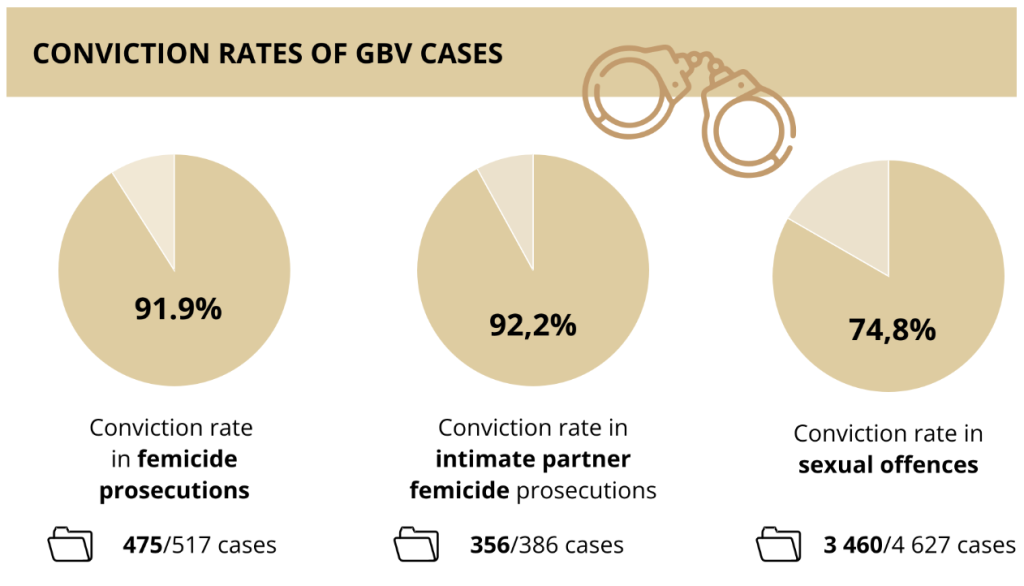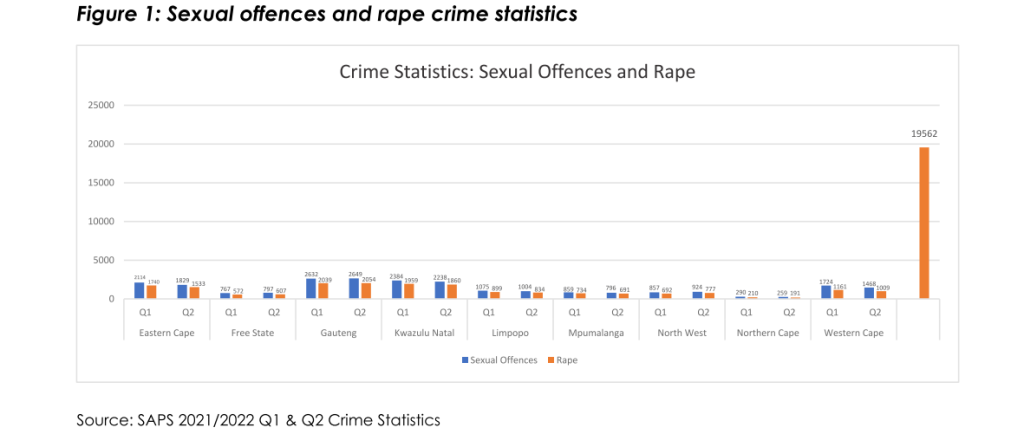Gauteng’s GBV Hotspots: Crime Stats Reveal Urgent Action Needed

Table of contents
- Gauteng’s Gender-Based Violence Crisis: Urgent Action Needed
- Gauteng’s GBV Crime Profile and Hotspot Areas
- Socioeconomic and Structural Factors Driving GBV
- Efforts and Preventive Measures in Gauteng
- The Call for Coordinated and Inclusive Action
- Tailored Approaches for Marginalized Groups
- Transforming Gauteng’s GBV Landscape
- Community Safety
Gauteng’s Gender-Based Violence Crisis: Urgent Action Needed
Gauteng remains one of the most affected provinces by gender-based violence (GBV) in South Africa. Alarming crime statistics reveal disturbing trends of violence against women. Several precincts consistently rank among the country’s top hotspots for sexual offences and related crimes. Therefore, the need for effective prevention measures, improved responses, and stronger community engagement has never been more urgent.
This article provides an in-depth look at the current GBV crime landscape in Gauteng. It highlights key GBV hotspots, explores contributing factors, and outlines the ongoing efforts to combat this crisis.
ALSO READ: Women’s Day Marred by GBV as Reported Cases Surge in South Africa
Gauteng’s GBV Crime Profile and Hotspot Areas
According to recent data from the South African Police Service (SAPS) and provincial reports, Gauteng recorded over 11,800 sexual offences in the first quarter of the 2022/23 financial year. This includes 9,516 rapes. This stark reality places Gauteng at the forefront of South Africa’s GBV crisis. Six precincts are listed among the top 30 nationwide for sexual offences. Additionally, 11 GBV hotspots are located within the province.
Key Hotspot Areas
Key areas of concern (GBV Hotspots) include urban centres such as Johannesburg, Ekurhuleni, and Tshwane. Women face significant risks not only in private spaces, where perpetrators are often familiar to the victims, but also in public areas like liquor outlets, educational institutions, and transport hubs. This widespread nature of GBV highlights the urgency of addressing the crisis from multiple fronts.

Intimate Partner Violence and Public Spaces
Research indicates that many rapes occur within residences tied to either the victim or the perpetrator. This points to high rates of intimate partner violence or violence by acquaintances. However, Gauteng stands out for its concerning number of sexual offences occurring in public spaces. This is indicative of broader safety issues that extend well beyond the confines of the home.

Socioeconomic and Structural Factors Driving GBV
A combination of socio-economic and structural factors underpins the prevalence of GBV in Gauteng. High unemployment, poverty, and income inequality make many households particularly vulnerable, especially those led by women. These women, often struggling with food insecurity and economic hardships, face increased risks of GBV.

Furthermore, widespread distrust in authorities and fear of retaliation discourage many victims from reporting crimes, limiting their access to justice. Research from the Gauteng City-Region Observatory highlights the intersection of structural inequality, social disempowerment, and perceptions of safety. These factors exacerbate vulnerabilities in marginalized communities, particularly for women.

Efforts and Preventive Measures in Gauteng
In response to the growing GBV crisis, Gauteng has taken significant steps to strengthen its approach. This includes the creation of a Provincial GBV Coordinating Team and the establishment of rapid response task forces. Collaborations between government agencies, civil society organisations, law enforcement, and health services are also included. These initiatives aim to improve response times and provide better support to survivors.
Prevention Programs and Awareness
GBV prevention programs in Gauteng have reached over 227,000 people. There is a focus on vulnerable groups such as young women and children. The province also provides funding to nonprofit organizations and social worker initiatives. These efforts aim at increasing awareness, supporting survivors, and promoting behavioral change in communities.
Despite these efforts, challenges remain. Issues such as delays in forensic processing (e.g., DNA testing) and obstacles in case reporting continue to delay justice. Additionally, there is an ongoing need to improve victim support services. These services help rebuild trust in the justice system and ensure the safety of survivors.
The Call for Coordinated and Inclusive Action
To tackle the GBV crisis effectively, experts and civil society organisations are advocating for the creation of a provincial GBV council. This body would oversee the implementation, monitoring, and accountability of GBV interventions. Furthermore, there is an increasing emphasis on implementing behavior-change programs aimed at men and boys. The goal is to reshape cultural attitudes and reduce instances of violence.
Tailored Approaches for Marginalized Groups
It is also essential to develop tailored approaches for marginalized groups. These include LGBTQIA+ individuals, people with disabilities, and Black women, who often face unique vulnerabilities. Developing ethical guidelines for service providers and offering continuous training is critical to ensuring that survivors are treated with dignity and respect.
Transforming Gauteng’s GBV Landscape
To address the persistent GBV crisis in Gauteng, urgent, multifaceted actions are needed. Key measures include:
- Strengthening police capacity at GBV desks. Currently, only 134 out of 1,154 police stations nationwide have dedicated GBV units.
- Expanding community awareness campaigns to reach more individuals, encouraging early reporting and support for survivors.
- Improving forensic and judicial processes to expedite case resolutions and deliver timely justice.
- Investing in social and economic empowerment programs to address poverty-related vulnerabilities that increase the risk of GBV.
- Enhancing data collection and analysis to better understand GBV patterns and inform targeted interventions.
Community Safety
The safety and empowerment of women in Gauteng, as well as vulnerable groups at large, depend on sustained and inclusive efforts. If these initiatives are not implemented consistently and effectively, the safety of communities will remain at risk. Consequently, the devastating impact of GBV will persist in the province. The ongoing commitment to improving GBV response strategies is essential. It is key to breaking the cycle of violence and fostering a safer, more inclusive society.


